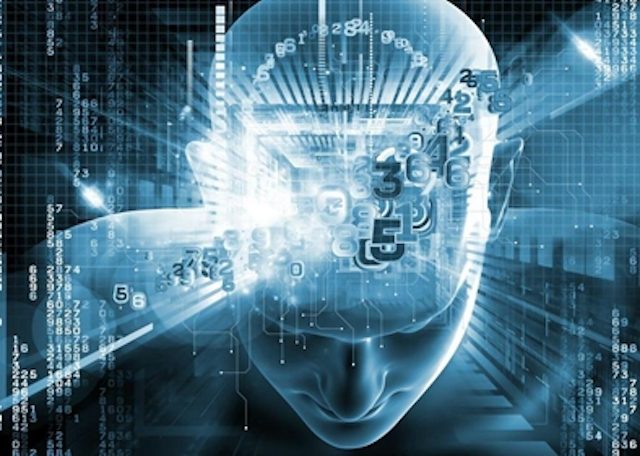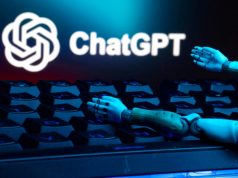LOS ANGELES, CALIFORNIA — The war between tech titans has begun. Some are worried about what artificial intelligence (AI) will mean for humanity, calling for slowing down the process of building it, while others are pretty optimistic.
Debate
For years, Elon Musk, CEO of Tesla and SpaceX, has been famous for his skeptical attitude towards AI and suggested it could be dangerous to the future of the human race.
Earlier this month, he warned a group of governors at the conference of the National Governors Association that AI is a “fundamental risk to the existence of human civilization.”
“Transport will be one of the first to go fully autonomous. But when I say everything — the robots will be able to do everything better than us. … I mean all of us,” Musk told the National Governors Association on July 15.P “I have exposure to the very cutting edge AI, and I think people should be really concerned about it,” Musk said. He urged the governors to initiate proactive regulation regarding AI technology.
Facebook CEO Mark Zuckerberg took exception. During the past weekend, while smoking meats and doing a Facebook Live feed from his backyard in Palo Alto, California, Zuckerberg blasted Musk-style warnings against AI as “pretty irresponsible” and “really negative.”
Zuckerberg said he is optimistic about AI, and opposed the spread of fear surrounding its potential.
“I think people who are naysayers and try to drum up these doomsday scenarios — I just, I don’t understand it. It’s really negative and in some ways I actually think it is pretty irresponsible,” Zuckerberg responded in a Live feed recorded on July 23.
He praised Facebook’s AI Research team and researchers at Cornell and Tsinghua, China.
“One reason I’m so optimistic about AI is that improvements in basic research improve systems across so many different fields — from diagnosing diseases to keep us healthy, to improving self-driving cars to keep us safe, and from showing you better content in news feeds to delivering you more relevant search results. Every time we improve our AI methods, all of these systems get better. I’m excited about all the progress here and its potential to make the world better.”
“In the next five to 10 years, AI is going to deliver so many improvements in the quality of our lives,” Zuckerberg predicted.
On Tuesday, in a tweet, Musk shot back.
“I’ve talked to Mark about this. His understanding of the subject is limited,” he said.
Concerns
Zuckerberg is not the only one who has a much rosier vision of the future.
Andrew Ng, co-founder of Coursera and former chief scientist at the Chinese company Baidu, tweeted on Tuesday: “Kudos Mark Zuckerberg for speaking out against AI fear mongering.”
While the debate between Zuckerberg and Musk is ongoing, Ng shared his opinion as well. He told an audience at a Harvard Business Review event what AI’s real societal challenge is.
“As an AI insider, having built and shipped a lot of AI products, I don’t see a clear path for AI to surpass human-level intelligence,” he said.
“I think that job displacement is a huge problem, and the one that I wish we could focus on, rather than be distracted by these science fiction-ish, dystopian elements,” Ng said.
However, Musk is not the only tech billionaire who is sounding alarm bells over AI posing a threat to our safety and well-being.
Stephen Hawking, for example, has stated: “I think the development of full artificial intelligence could spell the end of the human race.”
Bill Gates, the founder of Microsoft, said that in the near future, robots doing more work will be positive, but he did express concern over the potential of AI in the long run.
“I am in the camp that is concerned about super intelligence,” Gates said in a question-and-answer session on Reddit, an American social news aggregation and discussion website.
Humanity and AI
“AI is the driving force of the fourth industrial revolution,” Fei-Fei Li, a top AI expert and chief scientist of AI/ML (Google Cloud), told Xinhua in a recent exclusive interview.
She believed that all vertical industries have the potential to benefit from AI deployments, saying “AI can make life better.”
“The risks are way over-hyped and the benefits of AI are under-represented in the popular media,” Tuomas Sandholm, a computer science professor at Carnegie Mellon University, told Xinhua earlier this year.
Sandholm and his Ph.D. student Noam Brown developed Libratus, a poker-playing AI computer program that in January beat a team of some of the best professional Heads-Up, No-Limit Texas Hold’em poker players.
No doubt, there will be lots of pressing problems for humanity to solve, which include AI amplifying racism and sexism, or the technology having the potential to put millions out of jobs.
“Technology can generally always be used for good and bad,” Matt Kodama, vice president of Product at Recorded Future, told Xinhua on Thursday at the Black Hat conference. He thinks the most important factor is people, who are using the tools.
Li believed that humanity as a whole has the responsibility to use AI technologies to benefit mankind.
With more tools and technologies being developed, “we see how they could be used to benefit people or be used in pretty bad ways and cause big problems,” Li said.
“It’s not only responsibilities for developers or discoverers. I think all these people should be engaged: Silicon Valley leaders, professors, students, policymakers, lawmakers, educators … everybody should be at the table discussing this,” she told Xinhua.
In the Chinese language, the abbreviation of artificial intelligence, or AI, is pronounced the same as the character for “love.”
“The ultimate power, in my opinion, is love, not AI,” Li said.










